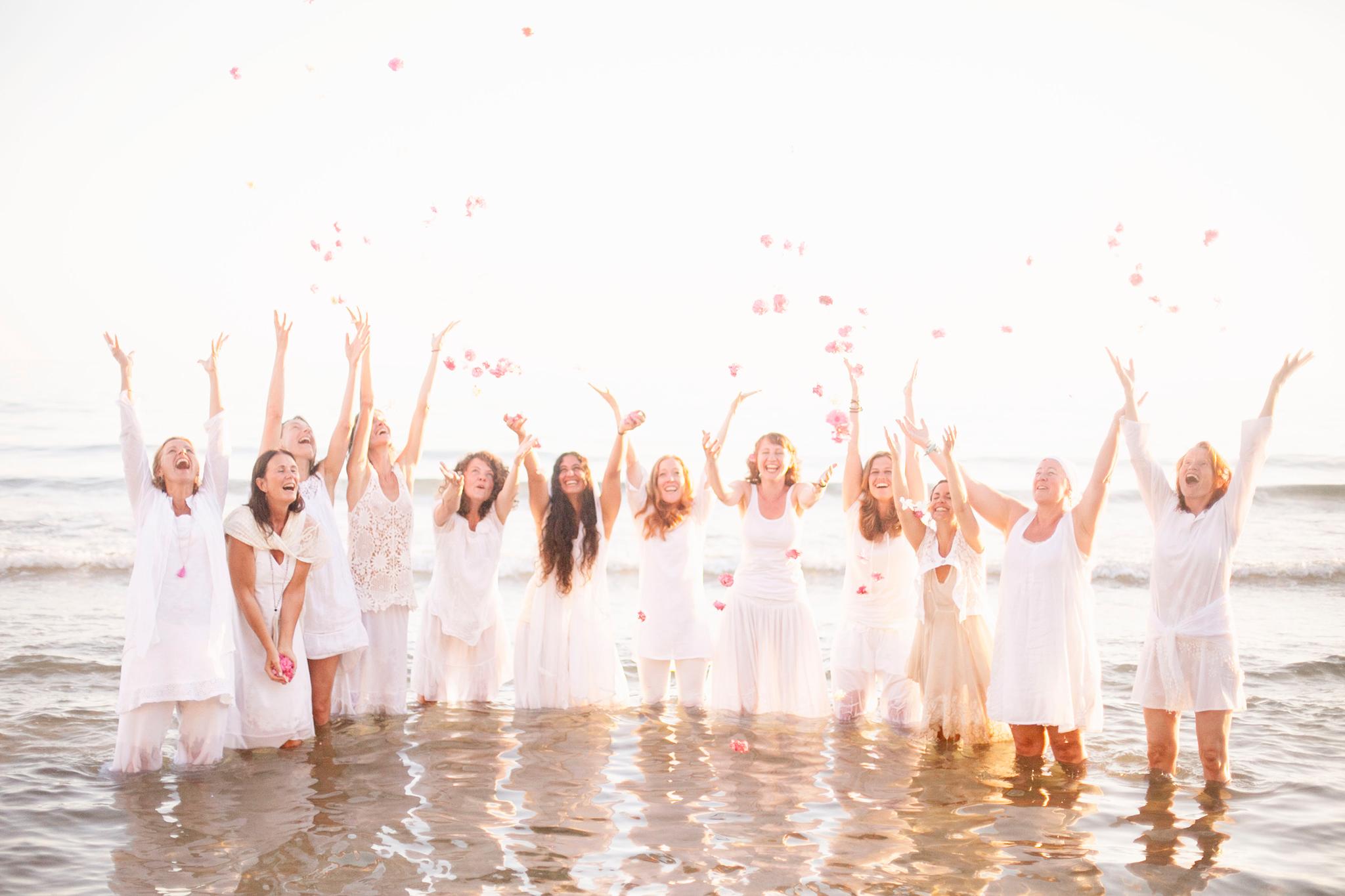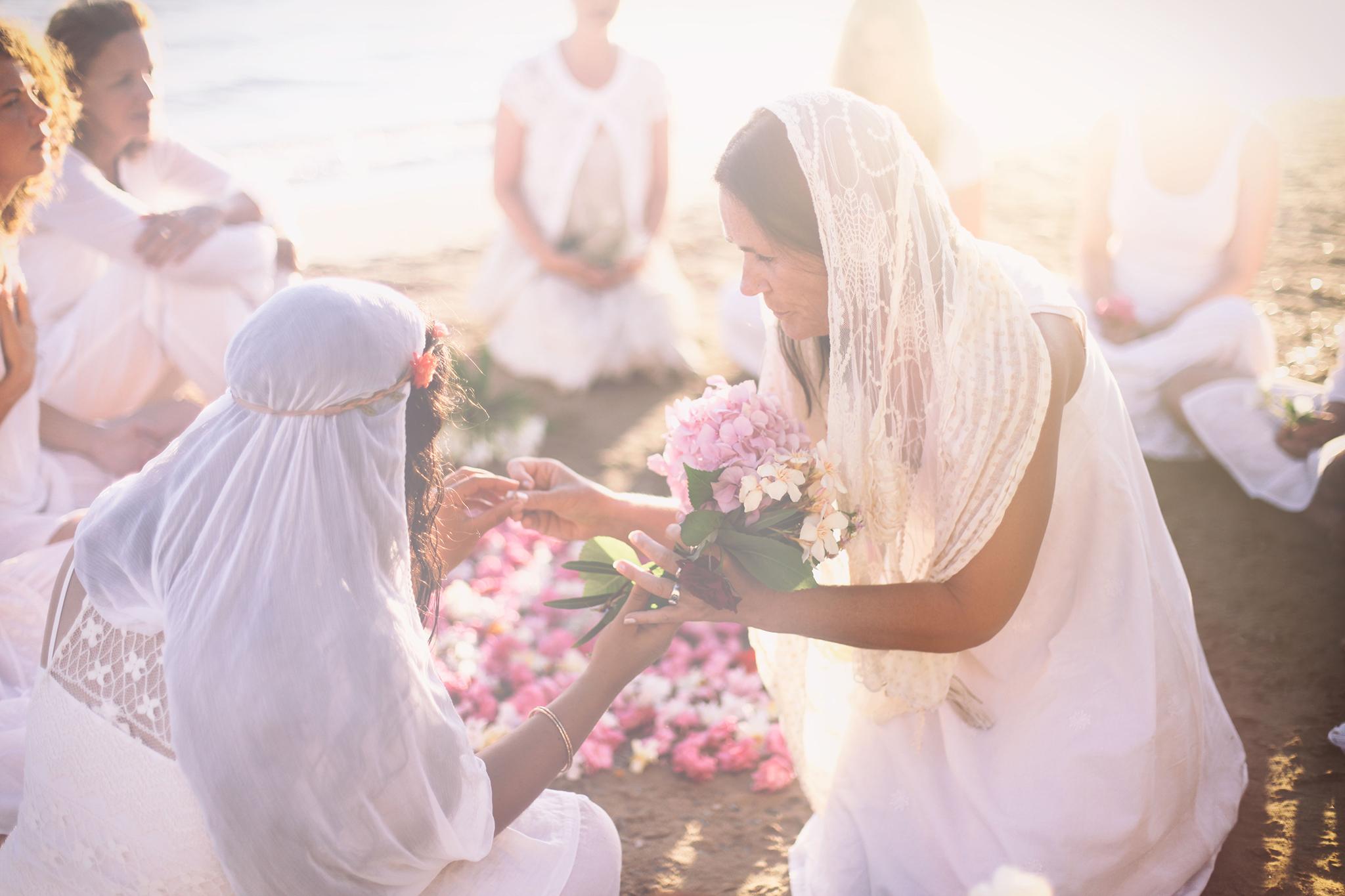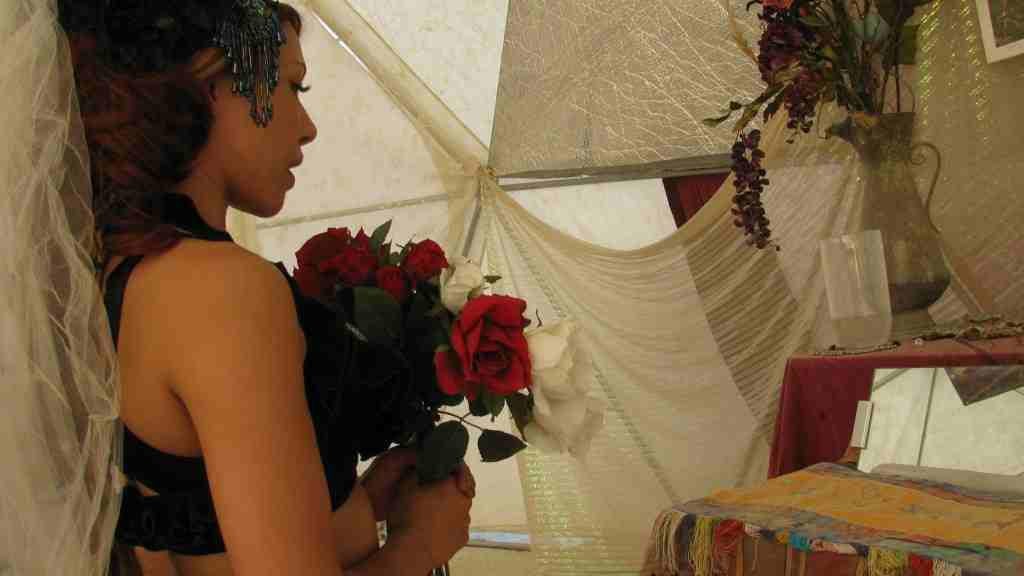Sologomy: Woman who helps others self-marry reveal what takes place in the ceremonies
Dominique, who married herself in 2011 and wears a nose ring as a symbol of her sologamy, talks to The Independent about how she helps other women undergoing the same commitment

Your support helps us to tell the story
From reproductive rights to climate change to Big Tech, The Independent is on the ground when the story is developing. Whether it's investigating the financials of Elon Musk's pro-Trump PAC or producing our latest documentary, 'The A Word', which shines a light on the American women fighting for reproductive rights, we know how important it is to parse out the facts from the messaging.
At such a critical moment in US history, we need reporters on the ground. Your donation allows us to keep sending journalists to speak to both sides of the story.
The Independent is trusted by Americans across the entire political spectrum. And unlike many other quality news outlets, we choose not to lock Americans out of our reporting and analysis with paywalls. We believe quality journalism should be available to everyone, paid for by those who can afford it.
Your support makes all the difference.Over the past few years, there has been a rise in ‘self-marriage’. This being quite as literal as it sounds – making a commitment to a deep, meaningful relationship with just yourself.
Self-marriage, otherwise known as sologamy, is not legally recognised but has been on a steady rise in recent years. In many cases, it can mirror traditional weddings with various case studies and news stories showing women in wedding dresses stood alongside their bridesmaids and wearing a wedding ring.
Dominique, from California, runs a self-marriage ceremonies website which assists people who wish to make that commitment to themselves. She says the community of people willing to do so is growing
She held her own ceremony in 2011, aged 22, after “practicing self-love for many years”, where she lit candles in her bedroom and vowed to be “kind and compassionate to myself, especially when I make mistakes”. Prior to this, she travelled across India for six months to connect with her own self-love after dedicating her career and studies to researching the subject.

“My purpose in life is to help hold a space within and for all to drop into our true nature of being, to love ourselves more fully, and to experience the true intimacy of the divine in order to create a world where we live, serve, and embody love,” she told The Independent. “I have dedicated my life to the pursuit and study of love as a force for global, social, and personal change.”
She has since worked with at least 250 clients in their self-marriage ceremonies, both in real life and over the internet. Charging $200 for a 10-week self-study programme in preparation for their ceremony, she advises on anything from advice on the deep connection to yourself you are supposed to aspire to as well as what should be involved in the ceremonies.
From the sounds of it, self-marriage ceremonies are not particularly different from traditional ceremonies involving two people. Dominique stresses each ceremony differs vastly depending on the person and there is not one fixed way for people to self-marry: some marry alone, as she did, others in public and some in front of family and friends.
“Some people like to guide their own ceremony and others like to have a friend or minister ordain the ceremony. In more public traditional ceremonies, there are speeches, cake and food, and wedding dresses involved; in others just a candle and silent vows taken.”
Self-marriage rings also exist but this too can take different varieties to the traditional. For Dominique, she had her nose pierced specifically and now wears a wedding nose-ring.
“I like to think of it as if I am breathing in my commitment to love with every breath,” she says.
While the trend has mainly been ascribed to women, who make up the majority of Dominique's clientele, she has worked with a few men. The reasons why people may self-marry vary.
“Most of the time it is a deep call from inside, the feeling that this would be the next step to living a life full of love, what is needed to commit more deeply to treat ourselves better,” she says. “Sometimes the call happens during a life transition for example when someone has broken up with their partner or got a divorce, is about to get married to someone else, or is longing to meet a life partner and knows that self-marriage is the first step.”
She lists the four components to self-marriage as: becoming your own lover and best friend, connecting with and committing to your deeper purpose, uniting all the aspects of yourself – even those which contradict each other and harmonising your external relationships and circumstances.
However, the movement is often met with cynicism and mockery. Dominique says she has experienced a mixed reaction to her own matrimony, admitting some do think it’s “crazy”.
What does she say to people who accuse those who self-marry of attention seeking and label it as nonsense?
“My experience is that most people who criticise self-marriage don't understand the full extent of it, or they see the world in a very different way than I see it. It can be thought of as something selfish or ridiculous, but when you actually take the time to consider what it really means, it is the most selfless thing a person can do: to commit to first know love within them, so they can more fully give love and be love in the world.
“For me, marrying yourself is not a performance or display of ‘look at me and how worthy of love I am!’ in some way that diminishes other people—it is a full claiming of the miracle of a single life, not separate from any other life. It is a celebration and an honouring in the deepest sense of a life in service to love and to me, this is something truly selfless, truly generous.”

Dominique does not seem too fussed about trying to convince the cynics, saying she is more than happy to let people have their own opinions.
In a modern society where marriage is on the decline, it could be argued that developments like self-marriage further undercut what some people, and groups, see as the sanctity of marriage. However, Dominique says her own ceremony has been the root of her strength in her relationship with her boyfriend.
“Self-marriage makes marriage to others more powerful,” she argues. “If we are true to ourselves and take full responsibility for our own lives, for our happiness and willingness to be kind to ourselves, there is even more space within us to love and support another. If we cannot handle or treat ourselves with love and compassion, how can we expect to love another?”
Join our commenting forum
Join thought-provoking conversations, follow other Independent readers and see their replies
Comments